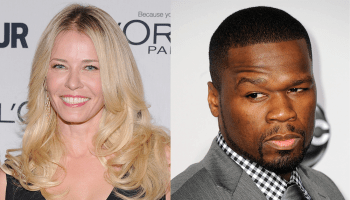For years, she’s been asking her mom for something special. Not a car or a game system or some designer purse. What this 19-year-old wanted is more unusual: a new name.
The one she was born with never felt right. The looks she got when strangers met her were rooted in racial stereotypes. Before she graduated from Shawnee Mission North High School last year, some classmates associated her name with video vixens, neck-rolling and Maury Povich tabloid fodder.
Not only was it frustrating, it hurt.
When her mother, Cristy, found out she was pregnant with a girl, there was never a doubt what her baby’s name would be. The single mom chose Keisha because to her, it represented a strong, feminine, beautiful black woman. As a white woman who would be raising a biracial daughter she wanted to instill that confidence and connectivity to the culture.
“I saw it as a source of pride,”
Cristy says.
“I wanted her to have that.”
In our society, names like Abdul and Muhammad get flagged for security checks. Tran and Jesus get labeled illegal immigrants. Deonte and Laquita? People see baby mamas, criminals and affirmative action hires. Billy Bob and Sue? Hillbillies and trailer parks.
It’s wrong. But it happens. We typecast certain names. It’s disheartening the way we nurture shame, both within ourselves and others.
“It’s like they assumed that I must be a certain kind of girl,”
she says.
“Like, my name is Keisha so they think they know something about me, and it always felt negative.”
Even a teacher once asked if there was a dollar sign in her name, like the singer Ke$ha. If she couldn’t even get through a class without a teacher taking a cheap shot at her name, what would happen in a job interview?
The more she shared these stories with her mom, the more it became apparent that Keisha was serious about changing her name — not different from the way some Jewish people change their last names to avoid anti-Semitism and Asians sometimes take traditionally American names in addition to their given names.
But not everyone was on board with Keisha’s mission. A close friend told her she should keep her name, show people that there is more to Keisha than ugly generalizations. The same person who doesn’t want to hire a Keisha may not want to hire a brown person, period.
“It’s not something I take lightly,”
she says, tears flooding down her freckled face.
“I put a lot of thought into it. I don’t believe you should just change your name or your face or anything like that on a whim. I didn’t want to change my name because I didn’t like it. I wanted to change my name because it didn’t feel comfortable. I don’t connect to it. I didn’t feel like myself, but I never want any girls named Keisha, or any name like that, to feel hurt or sad by it.”
Cristy started to look into changing her daughter’s name. It would cost about $175 and make the perfect Christmas present. But it was the hardest one to wrap her head and heart around. She loved the name she gave her daughter, and the intention behind the name Keisha Lenee Austin.
“It felt like a gift I gave to her, and she was returning it,”
Cristy says.
“Keisha was the only name I ever thought of, and when I talked to her in my belly, I talked to Keisha. But she’s still the same person, regardless of her name. But her happiness is what is most important to me. I love and support her, and whatever she has to do to feel good on the inside, I have to be OK with that.”
A week ago, they stood before a Johnson County judge, and now Keisha is Kylie.
And in the end, she is exactly what her mom wanted her to be — a strong and beautiful woman. Merry Christmas, Kylie Austin.
















